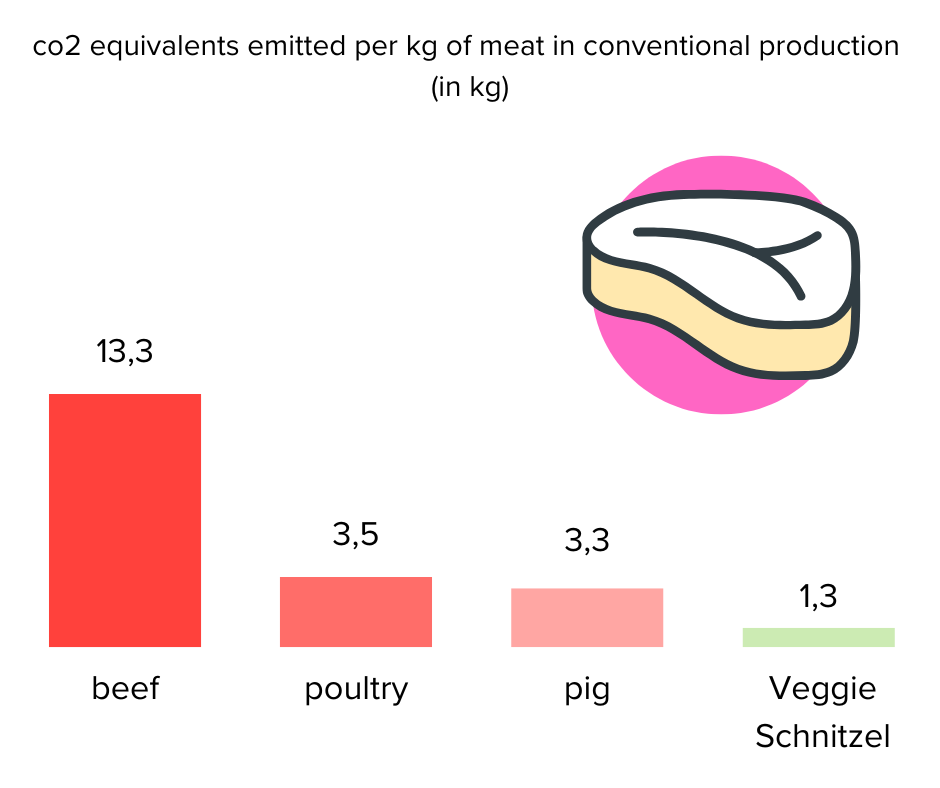Imagine this: a Schnitzel on your plate, golden and crisp, telling stories of culinary joy. As Earth Month starts this April, pushing us towards eco-friendly decisions, Schnitzel surprisingly becomes a main topic of discussion. Will Schnitzel be a sustainable choice, or will it become a relic of culinary history? Whether you're a Schnitzel lover, a plant-based advocate, or ready for change, there's a place for you in this discussion.
Schnitzel and Its Role in Climate Action
The journey of a Schnitzel from farm to fork is full of environmental considerations. The production of meat, especially from livestock like pigs and cows, is known for its significant carbon footprint. The process of bringing a Schnitzel to our tables is more resource-intensive than one might imagine. To illustrate:
The Environmental Impact of Schnitzel Production
Land Use and Biodiversity: Animal-based food sources provide less than 20% of the energy humans globally obtain from food, yet their production is immensely resource-intensive. Animals are fed plant-based diets for years before being slaughtered. Consuming these products poses significant disadvantages for land use and biodiversity as livestock farming drives deforestation. Traditional Schnitzel's reliance on beef intensifies these issues, threatening species and ecological balance.
Resources and Emissions: Producing meat for Schnitzel accounts for a significant portion of global greenhouse gases. Moreover, the water footprint of Schnitzel, primarily beef-based, is staggering, with thousands of liters needed for just 1 kg of beef. Choosing turkey schnitzel over rump steak can save around 75 percent of environmentally harmful greenhouse gases as the graph shows (source: ifeu).

Towards Sustainable Schnitzel Consumption
Choosing Local and Seasonal: Our diet is responsible for a third of global greenhouse gas emissions (WWF). Emphasizing local and seasonal ingredients can diminish the environmental toll of our meals, benefiting the planet and local farmers.
Vegetarian/Vegan Schnitzel Options: Plant-based Schnitzel alternatives significantly cuts down emissions, offering a delicious, eco-friendly choice. Going for plant-based Schnitzel means enjoying great taste and caring for the planet.
Imperfect Progress: We are all not perfect. An occasional craving for a traditional schnitzel is not the problem. However, a recent study by the IIASA demonstrates that if we could cut out meat from just half of our meals, it would be possible to save substantial emissions and massively reforest lands. It's about the collective impact of our daily choices. Choosing a vegetarian schnitzel at least once in a while and/or supporting climate projects can make a difference.
Schnitzel's Place in a Sustainable Future
Schnitzel and being eco-friendly can go together with the right choices and actions. Our goal is to make sustainability both achievable and delicious for you. In the future, you'll get more customized tips and tricks to help you live more sustainably - all while having fun and without any pressure.
This Earth Month, let's reassess not just Schnitzel but our entire dietary habits for sustainability!
➡️Scroll down our Website and sign up for our newsletter today and join a community committed to making every bite count towards a greener, more sustainable planet. Your journey towards impactful climate action starts now. Let's make it deliciously sustainable together.


